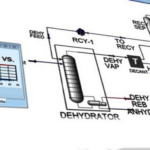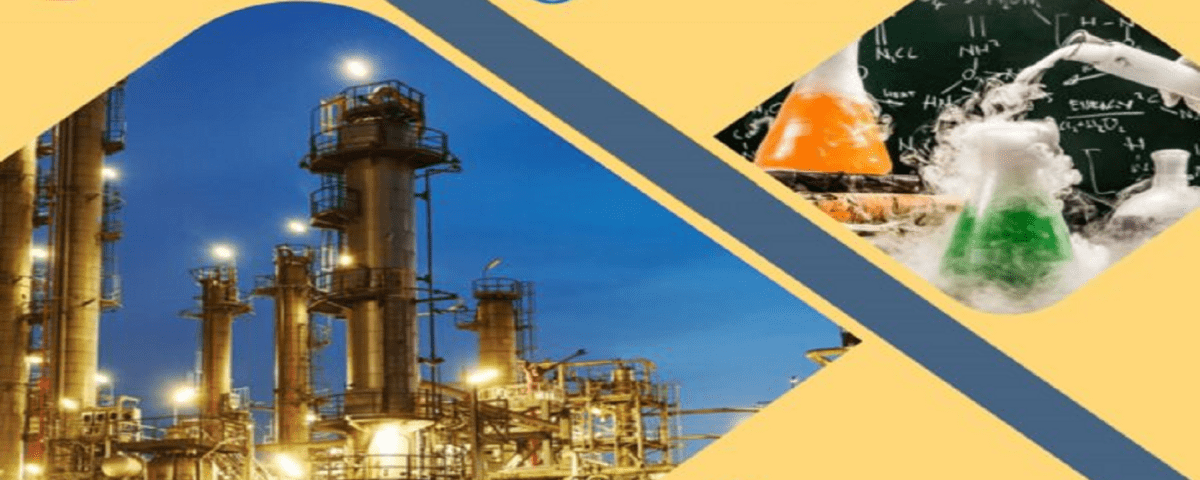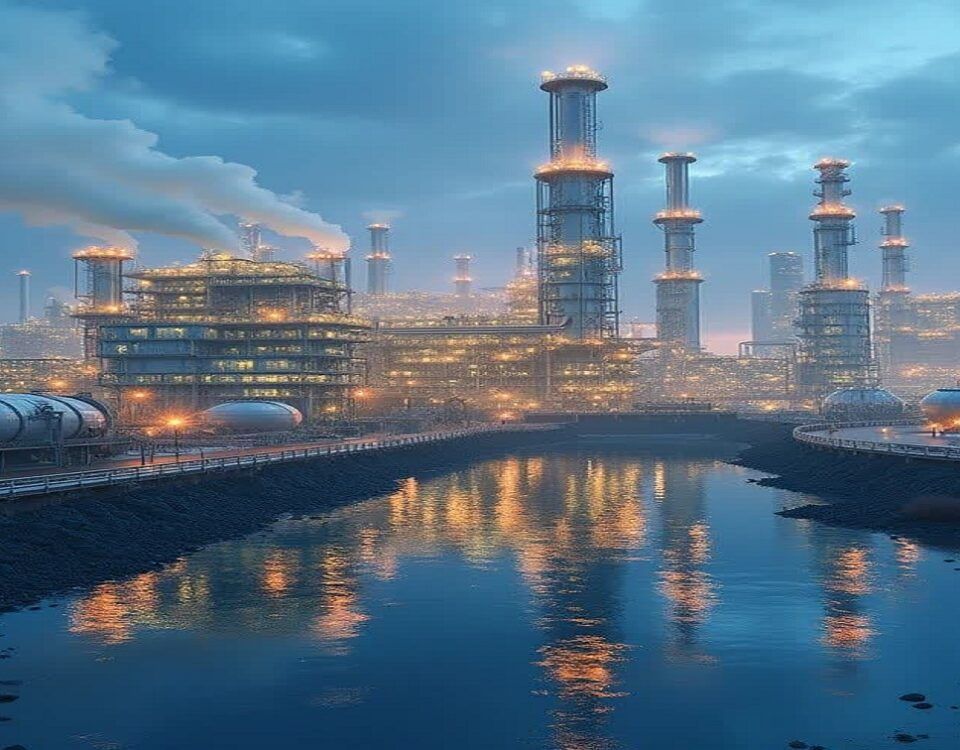
Specializations in Chemical Engineering
مهر ۸, ۱۴۰۳
Aspen Hysys Training
مهر ۸, ۱۴۰۳Introduction
Sometimes, friends, acquaintances, or those preparing for university entrance exams ask about the differences between Chemical Engineering, Pure Chemistry, and Applied Chemistry. This article will answer that question. The history of chemistry can perhaps be traced back to the emergence of humans on Earth. The word “chemistry” has a long origin, deriving from the ancient Persian term “kymia.” This term and the fascinating knowledge associated with it were written in Arabic, and Europeans became acquainted with it through Muslims, recognizing it as “alchemy.” Chemistry as a field is generally divided into three branches: Chemical Engineering, Applied Chemistry, and Pure Chemistry. We will introduce each of these branches and explore their differences.
Introduction to Chemical Engineering

The first lesson in Chemical Engineering was taught by Professor Norton in 1881 at MIT in the Mechanical Engineering Department, where he taught industrial chemistry. At that time, the chemical industry was developing rapidly, necessitating the design and operation of chemical processes by specialists. Initially, the design and oversight of chemical processes were conducted by two groups:
1. Chemists who were knowledgeable about chemical theories and laboratory sciences but lacked technical and industrial design experience.
2. Mechanical engineers experienced in industrial design but lacking sufficient knowledge of chemical processes.
For a time, both groups collaborated on the design of chemical facilities. However, a need arose for individuals who were knowledgeable in both chemical processes and industrial design, possessing the necessary laboratory experience. Consequently, a new academic discipline known as “Industrial Chemistry” or “Chemical Industries” emerged in universities. As the chemical industry evolved, the demand for such specialists increased, leading to the establishment of separate Chemical Engineering departments in universities distinct from Chemistry and Mechanical Engineering programs.
A Chemical Engineer is someone adept at designing and controlling industrial equipment for chemical production while having some knowledge of chemistry essential for industrial designs. Chemical Engineering primarily focuses on the design and maintenance of chemical processes for mass production, known as process engineering. The specific processes utilized, such as distillation and extraction, are called unit operations, combining chemical reactions, mass transfer, heat transfer, and momentum transfer.
Three fundamental physical laws in Chemical Engineering include the conservation of mass, conservation of energy, and conservation of momentum, with mass and energy transfer in chemical processes evaluated using mass and energy balances.
Branches and Aspects of Chemical Engineering at the Master’s Level
We will now introduce the branches of Chemical Engineering available at the master’s level:
– Process Design: This specialization captivates many students, focusing on design principles for chemical engineering processes and related equipment, including using engineering design software.
– Transfer Phenomena and Separation Processes: Students learn about advanced transfer phenomena such as heat, mass, and momentum, covering various separation processes, modeling, and simulating processes.
– Polymer Engineering: With the growing application of polymers, this branch covers the physical chemistry of polymers, polymer rheology, mechanical properties, and processing.
– Thermodynamics and Catalysis: This branch emphasizes thermodynamic principles and chemical reactions, with courses on catalyst fundamentals and electrochemical processes.
– Simulation and Control: It focuses on control systems in processes, covering advanced math, modern control, and applications of artificial intelligence in Chemical Engineering.
– Environmental Engineering: This increasingly relevant specialization addresses environmental issues related to industries, focusing on wastewater treatment, solid waste management, and air pollution control.
Introduction to Applied Chemistry

Applied Chemistry lies between Pure Chemistry and Chemical Engineering, allowing graduates to work in various chemical industries such as leather, paint, polymers, and pharmaceutical sectors. As technology advances, the demand for these graduates increases, especially in a developing country like ours, where technological progress is closely tied to chemistry. Students need interest, experience, and experimental skills in this field.
Applied Chemistry graduates take a practical approach to chemistry, transferring new findings into industry and technology. They play essential roles in developing various units and leveraging extensive mineral and energy resources. Graduates need a foundational understanding of mathematics, physics, and chemistry.
Continuing Education in Applied Chemistry
The undergraduate program focuses on theoretical knowledge, but the job market requires skilled individuals with experience. Aspiring students can pursue advanced degrees in both Master’s and Doctorate programs. The master’s specializations include:
– Physical Chemistry
– Organic Chemistry
– Inorganic Chemistry
– Analytical Chemistry
– Applied Chemistry
– Phytochemistry
– Nanochemistry
– Teaching Chemistry
– Propellants
– Polymer Chemistry
– Marine Chemistry
– Medicinal Chemistry
– Catalysis
Introduction to Pure Chemistry

Pure Chemistry involves the theoretical foundations of chemistry taught at universities, making it essential for laboratory courses. The separation of Pure Chemistry from Applied Chemistry doesn’t indicate that Applied Chemistry students lack knowledge of Pure Chemistry concepts, as they receive instruction in these areas.
The main branches of Pure Chemistry include:
– Physical Chemistry: This foundational field explores the physical properties of materials and theoretical analyses.
– Organic Chemistry: It studies carbon compounds, excluding carbon dioxide and similar compounds.
– Inorganic Chemistry: It examines properties and reactions of all elements and compounds apart from hydrocarbons.
– Analytical Chemistry: This field focuses on determining the composition and relative amounts of substances, involving both qualitative and quantitative analysis.
Master’s Level Specializations in Pure Chemistry
The master’s level of Pure Chemistry includes specializations such as:
– Organic Chemistry
– Analytical Chemistry
– Inorganic Chemistry
– Physical Chemistry
– Applied Chemistry
– Nanochemistry
– Phytochemistry
Job Opportunities for Graduates of Each Discipline

Every manufacturing facility, large or small, requires a Chemical Engineer since modern processes rely heavily on chemical materials. Our oil-rich country needs Chemical Engineers for extraction, refining, and converting oil into value-added chemical products. They play vital roles in reactor design and developing separation equipment. The need for Chemical Engineers spans across petrochemicals, cement production, ceramics, food processing, and power plants. Here’s a summary of job prospects for graduates in each discipline:
Job Opportunities for Pure Chemistry Graduates
The job market for Chemistry graduates is robust, as they are needed in quality control across manufacturing sectors. Besides research institutions, they are vital in examining raw materials and ensuring adherence to global standards. Pure Chemistry graduates provide theoretical solutions for industrial processes.
Job Opportunities for Chemical Engineering Graduates
Chemical Engineers have a broad range of job opportunities, including research positions at petroleum institutions, development roles in chemical factories, and positions in maintenance departments. Their unique expertise often leads them to commercial activities in chemical materials.
Job Opportunities for Applied Chemistry Graduates
Applied Chemistry graduates can engage in:
– Teaching in secondary schools.
– Assisting in university laboratories.
– Conducting research in industries or institutions.
– Working in quality control laboratories.
– Designing industrial projects based on chemical principles.
Graduates with a practical background in industry tend to have better employment prospects.
Conclusion
The presence of chemists and Chemical Engineers working together across various industrial sectors often leads to confusion between the two roles. Chemists typically handle chemical analysis, measuring properties and synthesizing new materials, often working in laboratory settings. Once a product or process is validated, it becomes the responsibility of Chemical Engineers to implement the developed technology economically, producing considerable quantities of the material.
Chemical Engineers translate theoretical technology from Chemists into practical applications, aiming for cost efficiency. They study subjects that emphasize the technological aspects of their field, leading to higher salaries due to their significant impact on public health and industrial operations.
In essence, while chemists focus on the expansion of scientific knowledge and laboratory process development, Chemical Engineering is about utilizing existing knowledge to create and improve industrial processes, where physical or chemical changes occur. Each discipline has its unique strengths, and the interplay between them remains crucial for industrial and scientific advancement.


2 Comments
Among the fields of chemical engineering, applied chemistry and pure chemistry, which one has a better market?
hello
In general, chemical engineering has a better market due to its wider applications